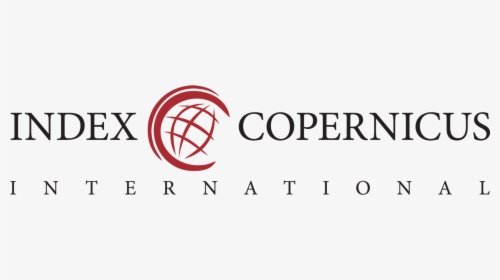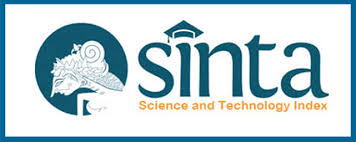Factors That Influence Onset Of Lactation In Post Partum Mother At Mother And Child Hospital Puri Bunda Malang
DOI:
https://doi.org/10.31290/jpk.v10i2.2145Keywords:
Parity, Labor Method, AnxietyAbstract
Exclusive breastfeeding is still very far from the national target of 80 percent. Infants who do not get breast milk will have an increased risk of respiratory infections, gastrointestinal infections, interfere with growth and development and poor body defense. Several studies have shown that the onset of lactation is one of the success factors of exclusive breastfeeding. Lactation onset is the mother perception when the breast feels hard, full or heavy and until milk or colostrum comes out. This study aims to determine the factors that influence the onset of lactation in post partum mothers, namely parity, labor and anxiety. This research is an analytical study with cross sectional approach, the sample in this study was 74 post partum mothers using purposive sampling method. Data collection using the lactation onset questionnaire and the Hamilton Rating Skale for Anxiety or HRS A questionnaire. Data analysis was carried out univariately and bivariately using the Chi Square test which showed that all factors namely parity, delivery methods and anxiety can influence the onset of lactation in post partum mothers. The parity factor was found to be p equal 0.023, the labor method was p equal 0.037, and the anxiety factor was p equal 0.002. The conclusion based on the results of the study is that multiparous mothers experience lactation onset faster than primiparous mothers, mothers with normal labor have lactation onset faster than mothers with cesarean delivery and mothers who experience anxiety will be slower in lactation onset compared to mothers who are not anxious. With the known influence of parity, delivery methods and anxiety with lactation onset is expected to increase breastfeeding for infants in RSIA Puri Bunda Malang.
References
Cunningham, F. G., Leveno, K. J., & dkk. (2009). Obstetri Williams Edisi 21. Jakarta: EGC.
Danuatmaja, B., & Melliasari, M. (2007). 40 Hari Pasca Persalinan Masalah dan Solusinya. Jakarta: Puspa Suara.
Dardiana, A. E. (2011). Hubungan antara Pendidikan, Pekerjaan dan Pengetahuan Ibu dengan Teknik Menyusui yang Benar di Desa Leteh Kecamatan Rembang Kabupaten Rendang.
Dewey K. (2003). Risk Factors For Suboptimal Infant Breastfeeding Behavior, Delayed Onset of Lactation, and Excess Neonatal Weight Loss .
Ernawati, & dkk. (2009). Asuhan Keperawatan Jiwa dengan Masalah Psikososial. Jakarta: Trans Info Media.
Grajeda, & Escamilla. (2002). Stress During Labour and Delivery Is Associated with Delayed Onset Of LactationAmong Urban Guatemala Women. The Jurnal of Nutrition.
Hruschka, D. J. (2003). Delayed Onset of Lactationand Risk of EndingFull Breast-Feeding Early in Rural Guatemala. Community and International Nutrition.
Ismiana, A., & Taufiqurrahman, I. (2014). Pengaruh Cara Persalinan Terhadap Inisiasi Laktasi. Jurnal Kesehatan Reproduksi, 214-221.
Lain, d. (2007). Metabolic Changes in Pregnancy Clin Obesed Gymool.
Manuaba, I. C. (2010). Ilmu Kebidanan Penyakit Kandungan dan KB. Jakarta: EGC.
Manurung, N. (2017). Asuhan Keperawatan Sistem Endoktrin. Yogyakarta: Grup Penerbit CV Budi Utama.
Maryunani, A. (2009). Asuhan Pada Ibu dalam Masa Nifas (Postpartum). Jakarta: Trans Info Media.
Masturoh, I., & Anggita, N. (2018). Metodologi Penelitian Kesehatan. Pusat Pendidikan Sumber Daya Manusia Kesehatan.
Mira, D. (2010). Buku Ajar Biologi Reproduksi. Jakarta: EGC.
Mursyida. (2013). Hubungan Umur Ibu dengan Pemberian ASI Eksklusif pada Bayi Berusia 0-6 Bulan di Puskesmas Pembinaan Palembang.
Mutmainnah, A. U. (2017). Asuhan Persalinan Normal dan Bayi Baru Lahir. Yogyakarta: Andi.
Notoatmojo, S. (2012). Promosi Kesehatan dan Perilaku Kesehatan. Jakarta: Bineka Cipta.
Prawirohardjo, S. (2010). Ilmu Bedah Kebidanan. Jakarta: PT Bina Pustaka Sarwono Prawirohardjo.
Purwanti, H. (2014). Konsep Penerapan ASI Eksklusif. Jakarta: EGC.
Puspita, R. L., & Nursanti, I. (2013). Kecemasan Menghambat Onset Laktasi Ibu Post Partum. Media Ilmu Kesehatan.
Rini, S., & Kumala, F. (2016). Panduan Asuhan Nifas dan Evidence Based Practice. Yogyakarta: Deepublish.
Rivers, d. (2010). Delayed Onset of Lactogenesis Among Firs-Time Mother is Relaed to Maternal Obesity and Factors Associated with Ineffecctive Breastfeeding.
Roesli, U. (2008). Panduan Inisiasi Menyusui Dini plus ASI Eksklusif. Jakarta: Pustaka Bunda.
Sherwood, L. (2012). Fisiologi Manusia dari Sel ke Sistem. Jakarta: EGC.
Sjarif, D. R., Lestari, E. D., & dkk. (2014). Buku Ajar Nutrisi Pediatrik dan Penyakit Metabolik. IDAI.
Sugiyono. (2018). Metode Penelitian Kuantitatif. Bandung: Alfabeta.
Sumiaty. (2011). Biologi Reproduksi Untik Kebidanan. Jakarta: Trans Info Media.
Trianita, W. (2018). Hubungan Pendidikan, Pekerjaan, dan Sikap Ibu Menyusui Terhadap Praktek Menyusui Bayi Usia 0-6 Bulan di Wilayah Kerja Puskesmas Telaga Biru Sianta Hulu Pontianak Utara. Pontianak Nutrition Journal.
Varney, H. (2007). Buku Ajar Asuhan Kebidanan Edisi 4 Volume 1. Jakarta: EGC.
Varney, H. (2008). Buku Ajar Asuhan Kebidanan Edisi 4 Volume 2. Jakarta: EGC.





